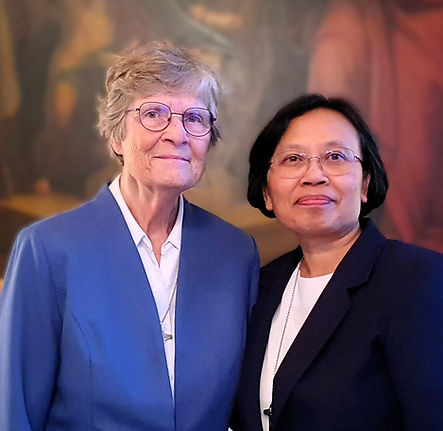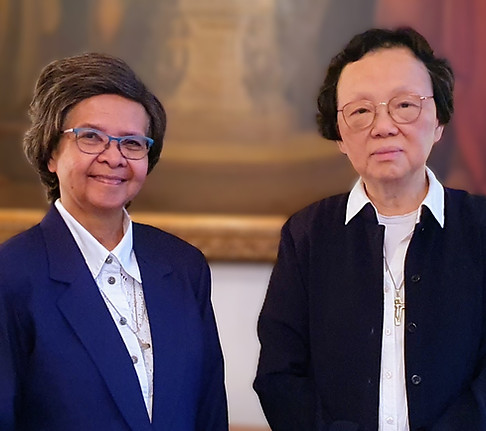St Charles Borromeo
SISTERS OF CHARITY OF
Burning with Compassionate Love
of Jesus Christ Crucified


THE NEDERLANDS
The Dutch Region of the Sisters of Charity of St. Charles Borromeo is an older community of religious women, called by God to dedicate their lives to serving others in the spirit of the Foundress, Mother Elizabeth.

Het Regionaal Bestuur:
zr. Kitty Andree en zr. Lisbeth Cicih Ratwasih (regionale overste)

Het Ondersteuningsteam voor het Regionaal Bestuur:
zr. Hetty Sri Widjajanti en zr. Terry Novaria Mulijadi
From the Mission and Vision Statement of the Dutch Region of the Sisters of Charity of St. Charles Borromeo:
As the oldest region of the Congregation, we feel blessed to receive its spiritual heritage, to live it through our lives and mission, and to pass it on to others, especially our fellow sisters from other areas. During the heyday of our existence, we shaped this mission through education, care for the sick, and by founding new communities in the Netherlands and other countries. Today, as an older religious community, we continue to participate in the Congregation's mission through our lives, prayers, and suffering (cf. Dir. 39).
In this generation, we are experiencing the profound process of aging, declining strength, and loss of commitment. Dealing with this creatively, we see as a new calling. Growing older offers opportunities to discover our personal inner journey and to experience that being has become more important than doing. We are in a period of completion. If we dare to view this period of life as a space for growth, we contribute to the future of the Congregation. We want to shape our lives as a community around the challenges that aging brings, and in doing so, we also want to be an example to people outside our community who struggle with issues related to aging, loss of social significance, and loss of self-esteem.
